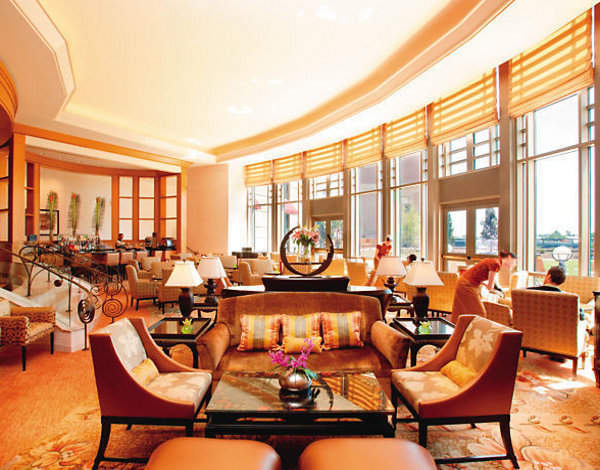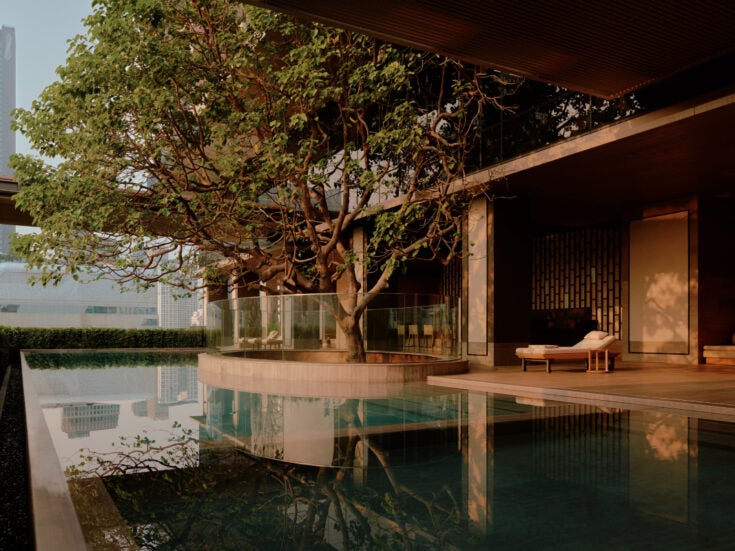

Yesterday was the annual press lunch for the Mandarin Oriental Group, which celebrated its fiftieth anniversary this month by wrapping Helen Mirren in a scarlet ballgown and flying her to Hong Kong for a party. Dozens of journalists chowed down at Bar Boulud on beef with bone marrow and entremêt au chocolat et framboise.
Business seems strong for the company, which is opening in four locations next year (from Morocco to China), but I spoke to one general manager who had had a slightly more torrid time of late.
Adriaan Radder, GM of Mandarin Oriental Washington DC (pictured above), said that his hotel had been badly hit by the government shutdown: ‘We lost $250,000 in bookings over the sixteen days. Occupancy, normally above 90 per cent, went as low as 30, 40 per cent.’ He was quick to add that everything from local coffee shops to the Mandarin had been affected.
Lars Wagner, GM of Mandarin Oriental Geneva, said the expensive Swiss franc had hit bookings at his property, while the cheap yen had been good for Anthony Costa at Mandarin Oriental Tokyo.

Pictured above: The Empress Lounge at Mandarin Oriental Washington DC
Given that luxury brands have weathered the economic storm better than most others – indeed, have thrived, with expansion into emerging markets – it seems only the effective shutdown of a city can halt them






